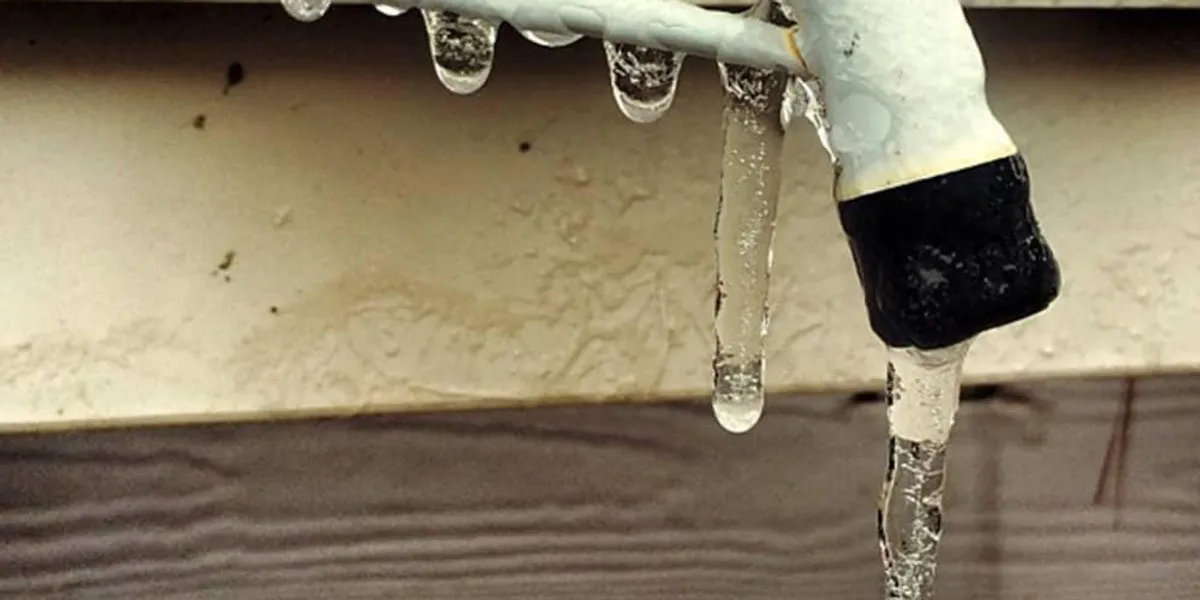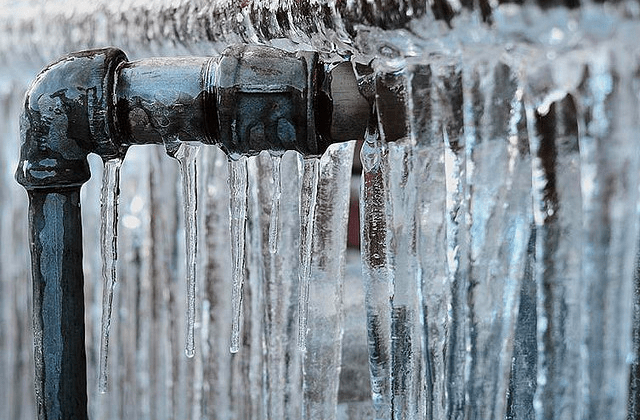Preventing Frozen Plumbing: Best Methods for Winter
Preventing Frozen Plumbing: Best Methods for Winter
Blog Article
Presented here below you will discover additional quality content relating to Preventing and dealing with frozen pipes.

Cold weather can ruin your plumbing, particularly by freezing pipelines. Right here's how to stop it from taking place and what to do if it does.
Intro
As temperatures decline, the danger of frozen pipelines increases, possibly resulting in pricey repair work and water damages. Comprehending how to prevent icy pipes is vital for property owners in cool climates.
Prevention Tips
Shielding prone pipes
Wrap pipelines in insulation sleeves or use heat tape to shield them from freezing temperature levels. Concentrate on pipes in unheated or exterior locations of the home.
Heating methods
Maintain indoor spaces adequately heated up, specifically locations with pipes. Open cabinet doors to enable cozy air to flow around pipes under sinks.
How to determine icy pipelines
Seek decreased water flow from faucets, unusual odors or noises from pipes, and visible frost on exposed pipes.
Long-Term Solutions
Structural adjustments
Take into consideration rerouting pipelines far from outside walls or unheated areas. Add added insulation to attic rooms, cellars, and crawl spaces.
Upgrading insulation
Buy premium insulation for pipelines, attics, and wall surfaces. Appropriate insulation helps keep constant temperatures and minimizes the risk of icy pipelines.
Protecting Outside Pipes
Garden hose pipes and exterior faucets
Detach and drain pipes garden pipes prior to winter season. Mount frost-proof spigots or cover outside taps with protected caps.
Recognizing Frozen Pipes
What triggers pipelines to ice up?
Pipes freeze when subjected to temperature levels listed below 32 ° F (0 ° C) for prolonged periods. As water inside the pipes ices up, it expands, taxing the pipeline walls and possibly triggering them to rupture.
Dangers and problems
Frozen pipes can lead to water system disruptions, property damage, and costly repair services. Ruptured pipes can flood homes and cause extensive structural damage.
Signs of Frozen Pipes
Identifying icy pipelines early can stop them from breaking.
What to Do If Your Pipes Freeze
Immediate activities to take
If you believe icy pipes, keep taps open up to eliminate stress as the ice melts. Use a hairdryer or towels taken in warm water to thaw pipes gradually.
Final thought
Avoiding icy pipelines requires aggressive steps and fast reactions. By comprehending the reasons, indications, and safety nets, property owners can shield their plumbing throughout cold weather.
Helpful Tips to Prevent Frozen Pipes this Winter
UNDERSTANDING THE BASICS: WHY PIPES FREEZE AND WHY IT’S A PROBLEM
Water freezing inside pipes is common during the winter months, but understanding why pipes freeze, and the potential problems it can cause is crucial in preventing such incidents. This section will delve into the basics of why pipes freeze and the associated problems that may arise.
THE SCIENCE BEHIND FROZEN PIPES
When water reaches freezing temperatures, it undergoes a physical transformation and solidifies into ice. This expansion of water as it freezes is the primary reason pipes can burst. As the water inside the pipe freezes, it expands, creating immense pressure on the walls. If the pressure becomes too great, the pipe can crack or rupture, leading to leaks and water damage.
FACTORS THAT CONTRIBUTE TO PIPE FREEZING
Low Temperatures: Extremely cold weather, especially below freezing, increases the risk of pipes freezing. Uninsulated or Poorly Insulated Pipes: Pipes located in unheated areas, such as basements, crawl spaces, or attics, are more prone to freezing. Insufficient insulation or lack of insulation altogether exacerbates the problem. Exterior Wall Exposure: Pipes running along exterior walls are susceptible to freezing as they encounter colder temperatures outside. Lack of Heating or Temperature Regulation: Inadequate heating or inconsistent temperature control in your home can contribute to frozen pipes. PROBLEMS CAUSED BY FROZEN PIPES
- Pipe Bursting: As mentioned earlier, the expansion of water as it freezes can cause pipes to burst, resulting in significant water damage.
- Water Damage: When pipes burst, it can lead to flooding and water damage to your property, including walls, ceilings, flooring, and personal belongings.
- Structural Damage: Prolonged exposure to water from burst pipes can compromise the structural integrity of your home, leading to costly repairs.
- Mold and Mildew Growth: Excess moisture from water damage can create a favorable environment for mold and mildew growth, posing health risks to occupants.
- Disrupted Water Supply: Frozen pipes can also result in a complete or partial loss of water supply until the issue is resolved.
WHY CERTAIN PIPES ARE MORE PRONE TO FREEZING
- Location: Pipes located in unheated or poorly insulated areas, such as basements, crawl spaces, attics, or exterior walls, are at higher risk of freezing.
- Exterior Pipes: Outdoor pipes, such as those used for irrigation or exposed plumbing, are particularly vulnerable to freezing as they are directly exposed to the elements.
- Supply Lines: Pipes that carry water from the main water supply into your home, including the main water line, are critical to protect as freezing in these lines can affect your entire plumbing system.
- Underground Pipes: Pipes buried underground, such as those connected to sprinkler systems or outdoor faucets, can be susceptible to freezing if not properly insulated.
https://busybusy.com/blog/helpful-tips-to-prevent-frozen-pipes-this-winter/

Do you really like more info about Helpful Tips to Prevent Frozen Pipes this Winter? Make a remark down the page. We'd be happy to see your thoughts about this post. Hoping that you come back again in the near future. Are you aware of somebody who is sincerely interested in the niche? Take a moment to share it. I praise you for being here. Please pay a visit to our site back soon.
Click Here Report this page